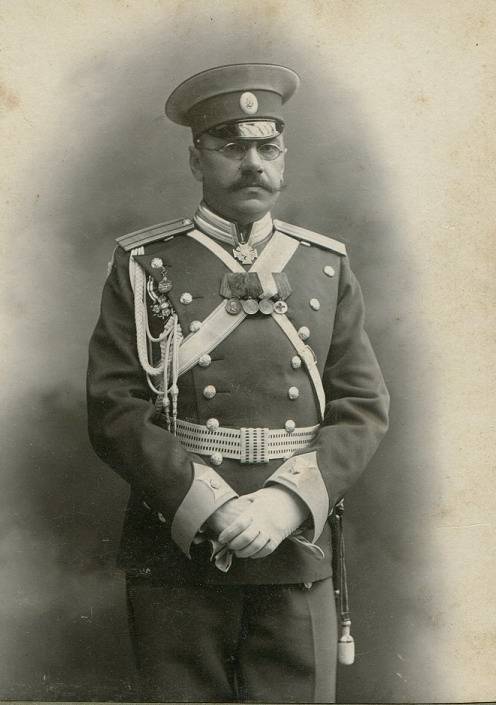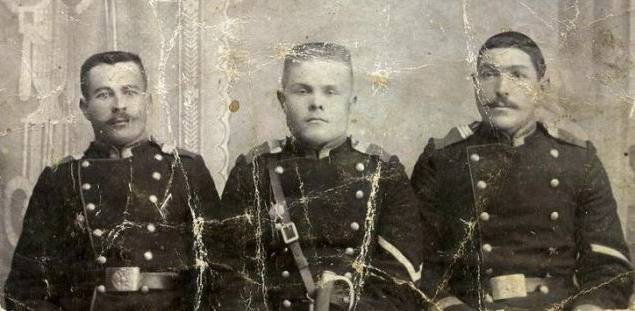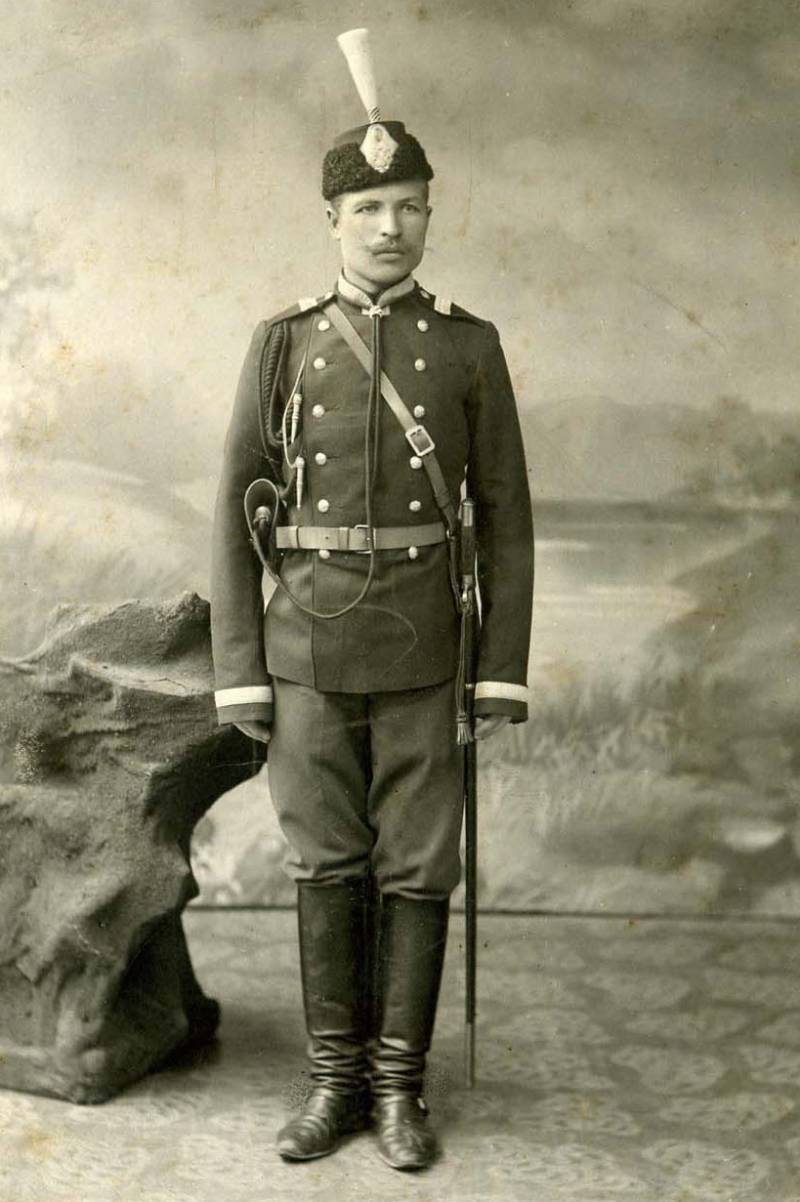On guard of state security. The history of a separate corps of gendarmes. 3 part
After the introduction of the judicial statutes of the Great Reforms of Alexander II, the prosecution of cases of state crimes was assigned to the prosecutors of the judicial chambers, while the jurisdiction of the gendarme authorities in this area was not provided. The arisen jurisdictional misunderstandings between the two departments that conducted investigations in similar categories of cases led to the issuance of special Rules from 19. 05. 1871, subsequently included in the Statutes of the Criminal Procedure 1892.
From this point on, the CRC was charged with conducting inquiries on cases of state crimes. Investigations were carried out by the officers of the Separate Corps (the gendarmes were engaged in inquiries both at the suggestion of the prosecutor and directly, in the latter case making the prosecutor only aware) - except for the case of the commission of a criminal act only by military personnel in the exclusive jurisdiction of military or maritime commands or during performance of official duties.
Upon detection of an offense that does not contain signs of a state crime, the gendarmes limited themselves to informing the prosecuting authorities and the general police about this fact. But if there was a risk that the evidence and traces of the crime could die before the police arrived or the suspect could escape, the gendarmes had to take all the necessary measures. In exceptional cases, the prosecutor's supervisory authority was entitled, at its discretion, to impose on gendarme officials the production of inquiries and on cases of common crimes - however, the gendarme agency could, for a good reason, evade this order.
8. Gendarme (lower rank).
ZHRZhD, in addition to duties common to ROC officials, in the area of railways in all respects replaced the general police - the latter acted only at the invitation of the gendarme organ or in its absence. The protection of decency, external order and public safety are the main tasks facing the railway department. Prior to 1906, the ZHPZHD was not directly involved in political investigations, surveillance, and inquiries into cases of state crimes. But in accordance with the order number 145 from 28. 07. (10. 08.) 1906 was responsible for conducting inquiry for all crimes of a political nature committed in the railroad alienation zone. In the process of making inquiries, the heads of the Western Railway Department were subordinate to the leadership of the provincial gendarme departments. Got ZHDW and their secret agents.
During the procedural actions, the gendarmes were entitled to take a number of investigative actions: examinations, examinations, searches and seizures.
In the event of wrongdoing and abuse of authority in conducting inquiries, officers of the gendarmerie body could be brought to justice - but only by their direct supervisors, while the prosecutor’s office could only inform about this fact and, in the event of a lack of discipline imposed on the gendarme, to the Minister of Justice - for the subsequent coordination with the Minister of Internal Affairs. Disagreements between the authorities of the guilty gendarme and the prosecutor on this issue were resolved by the Senate (for the 1 department).
The order of activity of the ranks of the OKZh was regulated by special instructions. So, the secret instruction from 14. 02. 1875 G. envisaged that gendarme activities consist both in preventing and suppressing various crimes and misdemeanors, as well as in comprehensive observation. It was noted that if the first of these activities is based on current legislation (primarily on the law of 19. 05. 1871), then the second, on the contrary, should not obey any specific rules, since its implementation requires open space "-" and then only meets restrictions when the material extracted by observation passes to legitimate soil and is assessed, that is, it is already the subject of the activity of the first type ". The document emphasized that the main task of the gendarme department employees was to, by observing the direction of public political ideas and the mood of society, identify and pursue any attempts to disseminate harmful teachings aimed at "shaking the fundamental basis of state, public and family life."
The gendarme authorities fought against anti-government movements, carried out the search for revolutionary organizations, transmitted particularly dangerous state criminals, supervised the capture of recruits, fugitive serfs, criminals, reported to the Third Office (later on the Police Department) about the mood of various sections of the population. “Regulations on measures for the preservation of public order and public peace” 1881 intensified the activities of gendarmerie bodies. And from the 80-ies of the XIX century. Investigations on political matters occupied a significant place in the activities of gendarme administrations. In the late XIX - early XX centuries. The gendarme authorities sometimes completed political affairs on their own, without transferring them to the judiciary (for example, the largest political process of the 90's - the St. Petersburg Union of Struggle for the Liberation of the Working Class).
In addition to the production of the consequences, the gendarmes should, as before, conduct comprehensive observation. The chief of the gendarmes was a circular from November 14 on 1875. They demanded that they constantly supervise schools, public lectures, the book trade, etc.
The gendarme authorities could carry out detentions (for a period of not more than 2 weeks) of all persons who instilled "substantial suspicion of committing state crimes or belonging to illegal communities", as well as conducting searches, etc. The governor or mayor at the request of the gendarme body had the right to extend the period of preliminary arrest for up to one month.
In order to successfully combat revolutionary propaganda and agitation, the Police Department in 1902 creates special city search departments, renamed 1903 as security - and the gendarme offices retain only the inquiry production function.
In accordance with the 1904 manual, the duties of the provincial gendarme directorates included: monitoring the population and the direction of public political ideas, informing the authorities about abuses and disorders, conducting inquiries into cases of state crimes, conducting investigations, observing persons crossing the border, implementing covert surveillance, counterintelligence, search for people hiding from the authorities, assistance to the general police in restoring a disturbed order, convoy escort Comrade In the provinces where there were no security departments, they carried out their previous duties in full.
In 1907, district security offices are created (by 1 in several provinces). The commander of the OKZh, Lieutenant-General P. G. Kurlov noted that the reason for this reform was the strengthening of the revolutionary movement, which showed insufficient numbers and poor training of the search officers of the gendarmerie bodies. OKZh officers got used to work according to the established patterns, focusing on searching underground printing houses and illegal literature, which they used to take as serious facts of anti-government activity. They could not embrace the modified and developing revolutionary movement, especially in the conditions of insufficient forces and means. To strengthen the investigative line, the director of the Police Department, M. I. Trusevich, also created district security departments. The heads of these departments were to not only direct the political search carried out at once by several provincial gendarme departments that were part of the respective district, but also to train officers in the search business. The OKZh category of so-called search officers stood out, which, according to PG Kurlov, was in an exceptional position even in relation to other corps' ranks: they ignored the local administration, and there was a certain discord between them and other corps officers. MI Trusevich was named as the culprit in the origin of these negative tendencies.
Here it is worth remembering that M.I.Trusevich was engaged in verifying the circumstances of the assassination of P.A. Stolypin (for whose protection P.G. Kurlov was responsible at the time) - and the latter’s sharp assessments regarding the activities of the director of the Police Department are not surprising.
There were also search points and search parts of the Railway Department. All of them recruited secret agents, organized external surveillance, carried out the perusal of letters and often resorted to the organization of provocation.

9. Head of the Ekaterininsky ZHPU Colonel OKZH D.N. Petrov 1907
In 1913 - 1914 Major-General V. F. Dzhunkovsky, commander of the CWW, reformed the structure he headed. In particular, the main part of the district security offices was abolished, and part of the offices was transformed into search points. On the ground, the leadership was concentrated in the provincial gendarme offices. Its circular from 01. 05. 1913 VF Dzhunkovsky banned the recruitment of secret agents from students in secondary schools. Moreover, the general demanded to get rid of those who were recruited earlier. He rightly pointed out that students are only an object of propaganda, and using them as agents is harmful and inappropriate.

10. The lower ranks of the OKJ. 1910
To be continued

Information